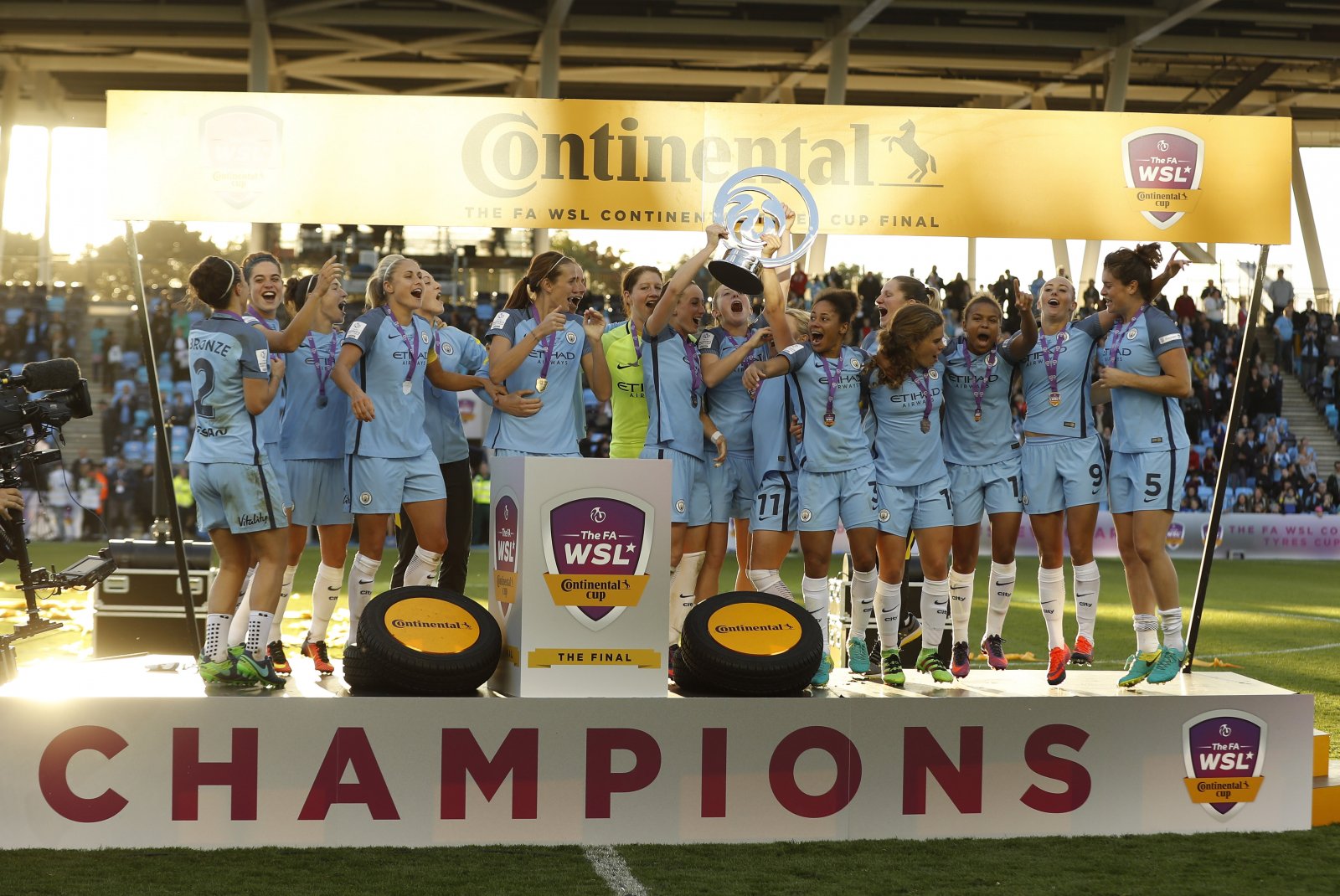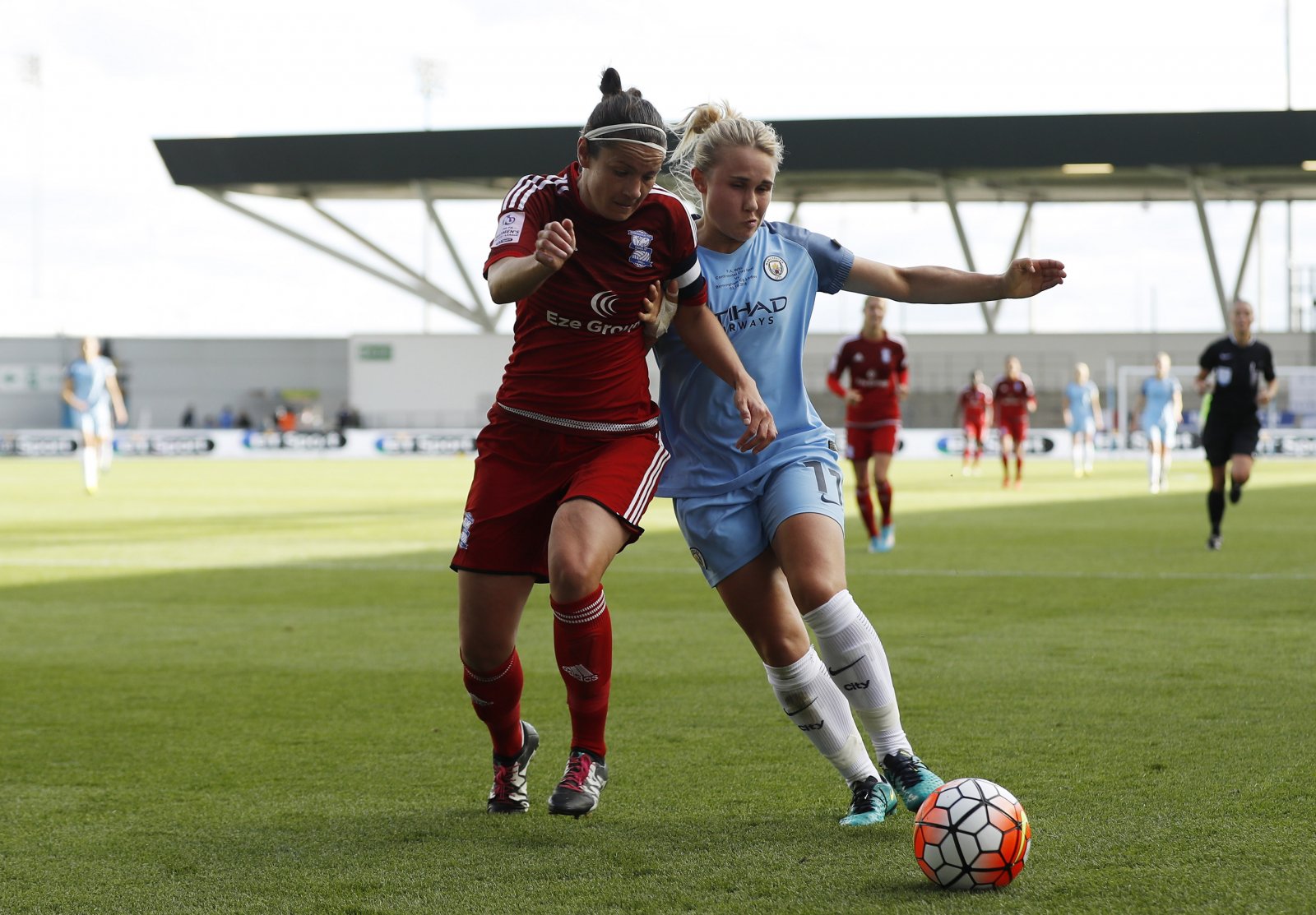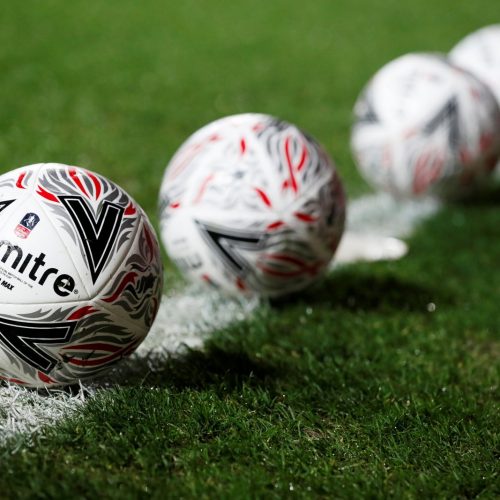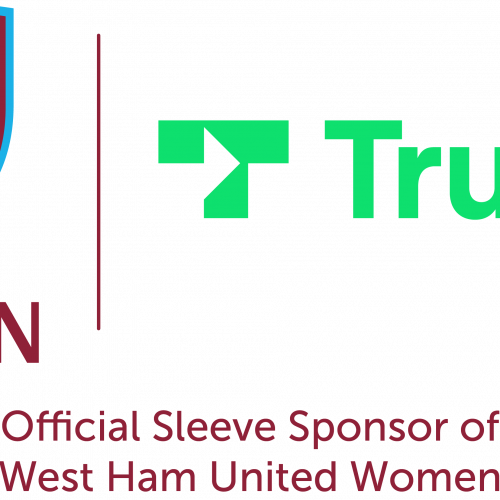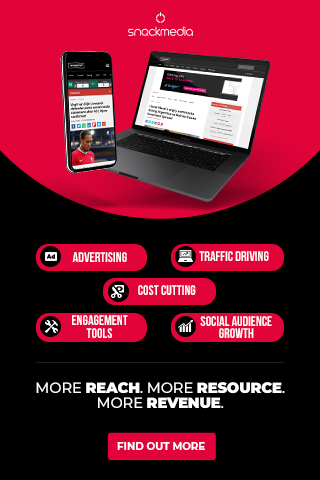As the Women’s Super League kicks off, the sport continues to grow with clever digital strategy
On Friday night, the Women’s Super League season will begin with a bang as Merseyside rivals Liverpool and Everton face each other in what you might describe as a baptism of fire for the fledgling season.
As the growth of women’s football continues, the WSL has switched to playing in the winter, bringing the women’s league back in line with the men’s for the first time since the creation of the new league structure in 2011.
That growth doesn’t just have to do with the rise in quality in the British game at women’s level, which has certainly been on the increase of late, both at club and international level – even despite the recent negative press made by the England national team after the sacking of manager Mark Sampson. It also has to do with how the game is structured for a digital audience.
From the start of the league season this weekend, highlights of all WSL games will be made available on the FA website, whilst a round-up and highlights show will be broadcast by the BBC. Then there will be live games on BT Sport, as well as coverage on radio and highlights clips posted to the FA WSL official Twitter account, just as Sky Sports and BT do for some of the men’s games they cover.
But the biggest and most exciting news is the fact that the WSL Facebook page will stream a selection of games on Facebook Live this season. Live-streaming is becoming a more natural way to present live sport, but it’s not just another way of broadcasting, it’s a way of broadcasting to more people than you might normally reach.
For a league like the WSL, which is still growing, Facebook Live represents a perfect opportunity to attract new fans. But this isn’t to extol the virtues of live-streaming over everything else. There has to be a balance. Indeed, ever since football on TV boomed in the 1990s, there has always been an unarticulated notion that the ‘big game’ was somehow premium if it was broadcast by the likes of Sky Sports. In the 1990s, Sky did a great job of making every Premier League game feel like a special one when it was on their channels, and whether or not the reach was big didn’t matter too much because it entailed a glamorous experience. It made the league feel premium.
For the WSL, a big game like the Merseyside derby doesn’t need to be given an added ‘premium feel’, it’s already a big game whatever happens. But the fact it’s shown by a big broadcaster like BT seems to add a little bit more to the event.
But despite that, the exciting bit does seem to be the Facebook Live element, something that provides a great opportunity for the WSL to broadcast its product to more people than it’s been able to before.
The measure of success for a growing sport should not be the number of people who sit down and watch every minute of the game. It should be about getting more people to follow the sport throughout the season, and getting more people to engage with it. In the end, what matters isn’t really the numbers who watch from start to finish, but that more and more people know which teams are doing well, who the best players are, and what the storylines of the season are. That’s what gets people to tune in over the long run: people like the soap opera of sport.
Eventually, of course, the ultimate goal is that more people watch every game. But giving a potential new audience the option to dip in and out of some live-streams for free, or to watch highlights of all the games in one place, or to find out where to follow teams and players on social media is vital for growing fans rather than just viewers. The FA look to have done a great job of making all of this available, and also given interested people the opportunity to get involved themselves, to find videos to help young aspiring players with their techniques and give them a resource to find ways to get involved and participation opportunities in their area.
That’s how you grow fans and not viewers. That’s how you get people involved. But the grassroots and the growing of the game among those who may not have thought about watching before is only one side. There’s that premium side of things, too. The bit that makes you aware that, if you’re watching the game on a national broadcaster like BT, it must be a big game.
Just like Friday night’s big kick-off: Liverpool v Everton, the Merseyside derby – one of the biggest games in the English footballing calendar, and it’s live on BT Sport. There’s a glamorous feel to that, and something you may not immediately get if you’re watching on a Facebook Live stream. Not until live-streaming becomes more established, perhaps.
But that balance is so important. And it’s also why the WSL is arguably in a very exciting position: they can play around with their rights structures and embrace Facebook Live, BBC highlights and premium BT Sport slots in different ways, creating ways of consuming the sport that the Premier League and other big sports probably aren’t able to match.
Indeed, there’s probably a comparison with the NFL here. Their similar ability to experiment with how their rights are sold in Europe helps them to grow an audience. They now have the ability to cater to casual or new fans with a regular highlights show on the BBC, the Match of the Day for NFL, but they also have Sky Sports coverage, and the Game Pass, where European NFL fans have the ability to stream all of the games live, as well as being able to download them to watch on-demand or watch games which are enhanced with tactical analysis, allowing fans to understand what they’re watching better.
The idea isn’t that the WSL should follow the formula, or indeed learn from a sport which certainly isn’t starting from the same platform, but there are similarities in approaches. Both are great examples of rights holders experimenting with different strokes for different folks. There are women’s football fans who are big fans of the sport and who will follow everything. There are casual fans who only want to watch some, but who want to keep up with the action and stay updated. And then there’s the fan who has never been interested before but who might be persuaded to watch an accessible show or watch if a friend shares a live game on Facebook.
The idea is to be flexible, and their attitude towards that is what makes the WSL look like such an exciting one to keep an eye on in the run-up to the new season. And when you boil it down, it should be. This is a football league in the UK, where genuinely big Premier League clubs with recognisable names battle it out each week and some of the games are available on Facebook Live for free. It all starts with a Merseyside derby on Friday night. What’s not to love?
About author
You might also like
Leeds United become first football club to sell official jerseys on TikTok
Leeds United is the first football club in the world to partner with TikTok to sell official merchandise and replica jerseys. Coinciding with the release of the new rhapsody purple,
Lewes FC Appoints Sue Anstiss To Its Board Of Directors
The Lewes FC Board is delighted to announce that it has co-opted Sue Anstiss as a Lewes FC Director. Sue has been a driving force for equality in sport for
Trustly extends partnership to become West Ham United Women’s Sleeve Partner
West Ham United is pleased to announce that Trustly has enhanced its relationship with the Club by becoming the Women’s Sleeve Partner. Trustly, the leading global account-to-account payments platform, became

